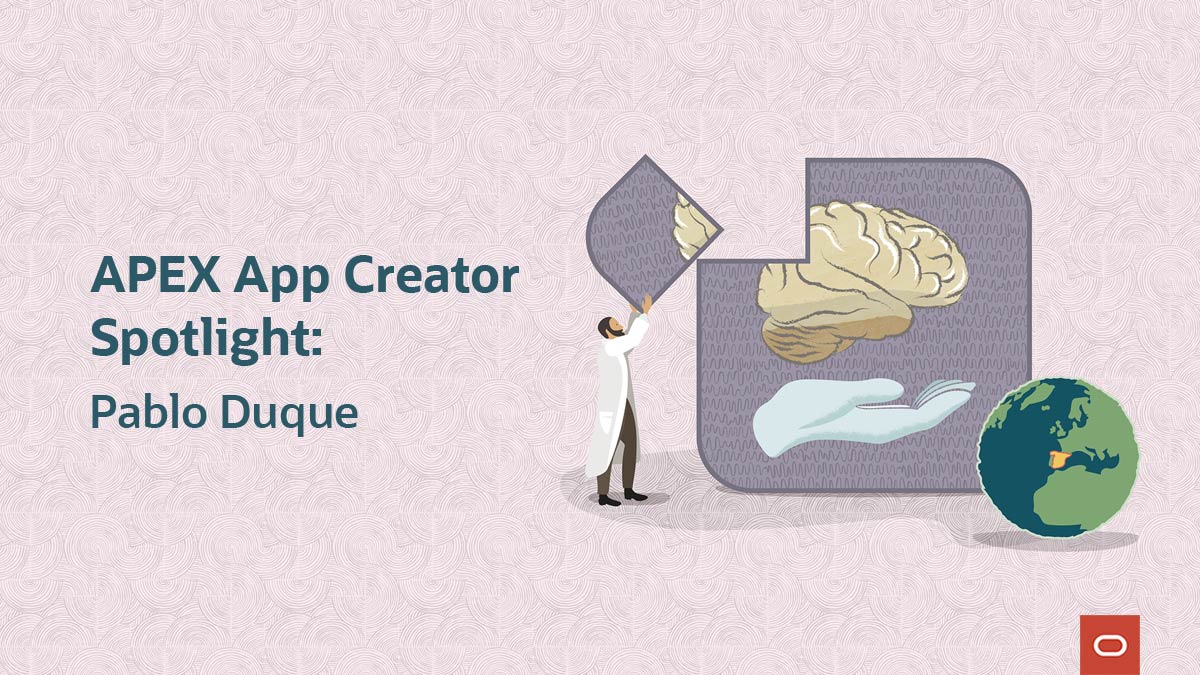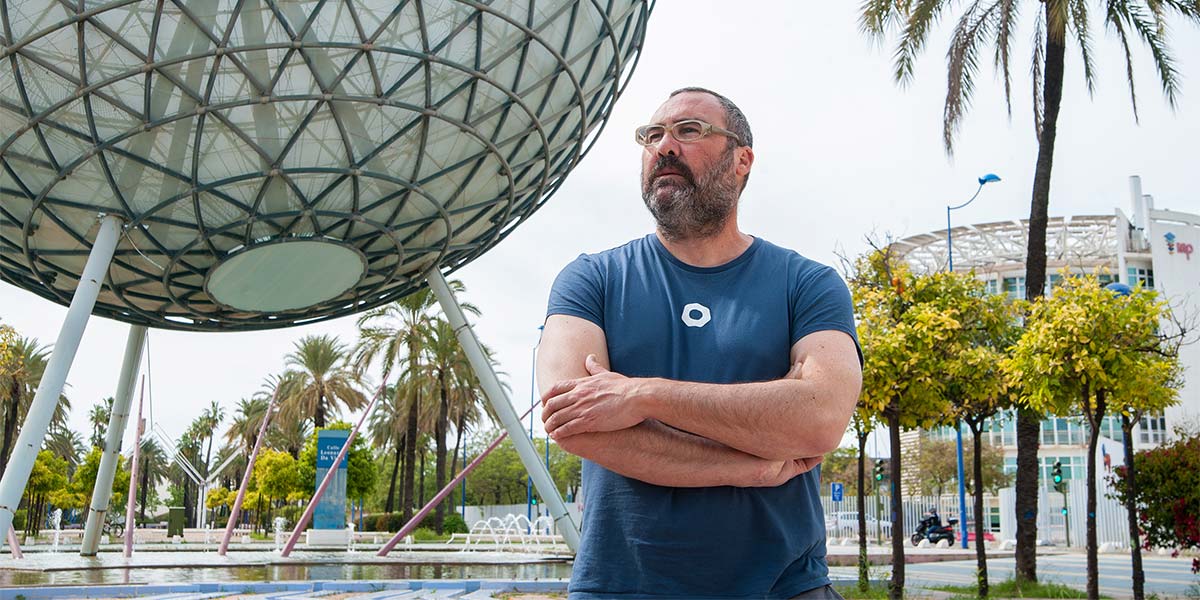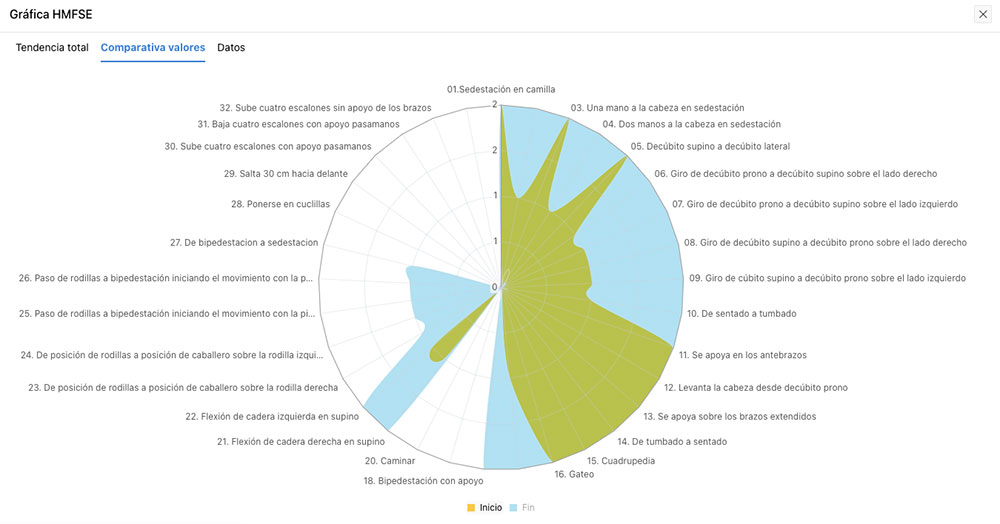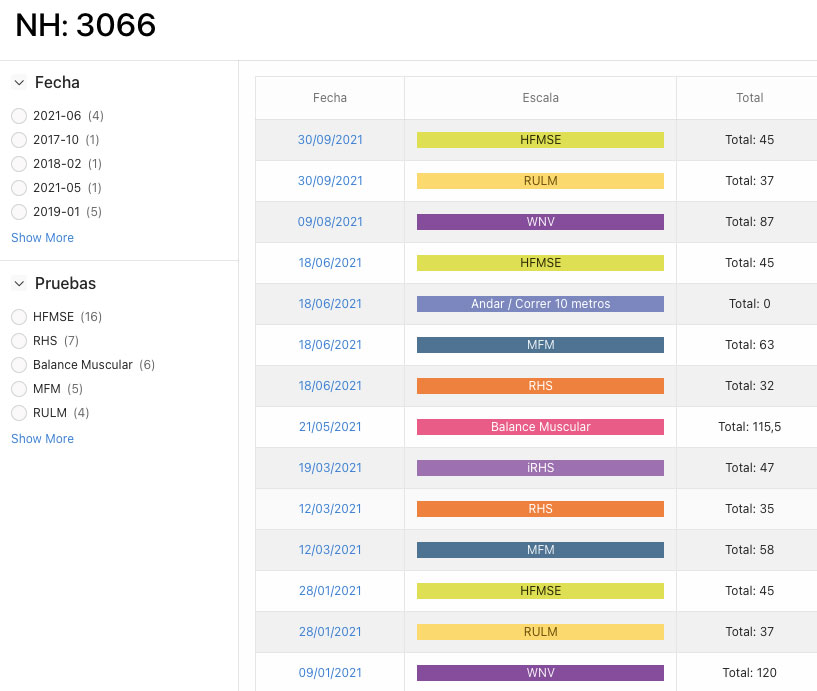
This blog was originally published on May 5, 2022.
Neurorehabilitation is a physician-supervised program designed for people with diseases, trauma, or disorders of the brain, such as Parkinson’s disease. To recommend a treatment for a patient with a brain disease or injury, neurorehabilitation specialists work with a team to conduct extensive evaluations and tests to track behavioral and cognitive changes.
These tests and evaluations produce a lot of data. Until recently, there wasn’t a central place where neurorehabilitation specialists could collect and store all that data. Instead, they might tap various disparate systems or rely on printed materials and charts to create an overall picture of patients and their needs.
“There was really no good software available to do that,” says Pablo Duque, a neurorehabilitation expert based in Spain with more than 20 years of clinical experience. “Our hope was that better access to data could help improve the level of care available to patients with neurological damage.”
So Duque made his own tool: NeuroBase.
 Pablo Duque, a neurorehabilitation expert based in Spain, used APEX to develop NeuroBase, an app neurorehabilitation specialists can use to collect and store data to improve the level of care available to patients with neurological damage.
Pablo Duque, a neurorehabilitation expert based in Spain, used APEX to develop NeuroBase, an app neurorehabilitation specialists can use to collect and store data to improve the level of care available to patients with neurological damage.
Creating a central data repository
Duque developed the NeuroBase app to provide neurorehabilitation experts one place to go to assess cognitive and behavioral data. Built on Oracle APEX, NeuroBase is a neurorehabilitation database that health professionals can use to collect and store relevant clinical information: cognitive, physical, functional, or computerized tests; previous reports from other professionals; clinical diagnoses; drug information; and more. They can also use NeuroBase to easily share that data with other health professionals. NeuroBase also allows test results and data to be graphed and viewed on a timeline, providing neurorehabilitation experts critical information about changes to a patient’s condition over time.
“NeuroBase allows us to standardize the data we collect,” says Duque. “APEX gave us the flexibility we needed to build an app that allows neurorehabilitation specialists, like myself, to achieve more, more easily.”
In addition to managing patient data, NeuroBase also provides another important purpose: It serves as a place to collect data and statistics that may provide health professionals with a better understanding of neurological disorders in the future.
 NeuroBase allows test results and data to be graphed and viewed on a timeline, providing neurorehabilitation experts critical information about changes to a patient’s condition over time.
NeuroBase allows test results and data to be graphed and viewed on a timeline, providing neurorehabilitation experts critical information about changes to a patient’s condition over time.
“For example, we can compile anonymous data about clinical assessments and study whether patients with amyotrophic lateral sclerosis (ALS) respond better to one type of treatment versus another type,” says Duque. “Thanks to the app, we can collect and standardize data, from basic statistics to more complex analysis and studies, and play with the data to hopefully make new discoveries that can help patients with brain diseases or injuries.”
Managing the business of medicine
In addition to allowing them to collect, store, and manipulate a wide variety of patient data, the NeuroBase app also includes tools to make it easier for neurorehabilitation experts to manage day-to-day activities. For example, health professionals can use NeuroBase to manage their agendas, schedule long-term treatments, handle accounting activities, automate patient invoices, and more.
“Neurorehabilitation experts are all about healthcare, but it’s still a business, and we still have to create products unrelated to healthcare,” says Duque. “Having this technology helps us immensely. And the fact that APEX is so flexible and scalable means doctors or centers that use it will be able to use and grow the application at a pace that meets their business needs.”
| “APEX gave us the flexibility we needed to build an app that allows neurorehabilitation specialists, like myself, to achieve more, more easily.” |
| — Pablo Duque, Neuropsychologist and Creator of NeuroBase |
NeuroBase also includes a patient portal where patients can view their own clinical data, see payments made or invoices due, view upcoming consultations or appointments, and more. A patient’s family members or legal guardians can also be assigned a user account so they can view information about the patient’s treatments, make appointments for the patient, download reports, and gain a better understanding of the objectives of the patient’s treatment.
“The portal helps the patients and other people involved in the patient’s treatment do many things without having to constantly request information from the medical staff,” says Duque.
Since launching NeuroBase in April 2021, Duque has licensed it for free to neurorehabilitation centers in several parts of the world beyond Spain, including Mexico, Uruguay, and Panama. There are currently about 20 neurorehabilitation centers using APEX, which translates to about 200 professionals.
“It was important to us to make this available broadly so we can help health professionals improve their clinical management and treatment of patients,” says Duque.
APEX advantages
Duque had little experience in computer programming, but several years ago he started a company called ELIA with two computer scientists who were fans of APEX technology.
“APEX is very flexible, easy to use, and fast,” says Duque. “The health professionals who use it can easily input and share information and then analyze that information either individually or as a team to try to develop the best course of treatment for each patient.”

The NeuroBase app provides neurorehabilitation experts one place to go to assess cognitive and behavioral data. Health professionals can use it to collect and store relevant clinical information and easily share that data with other health professionals.
NeuroBase contains sensitive patient data, so the application needed to be highly secure. Duque says strong privacy and security controls were another reason he chose APEX. “We can’t risk this type of sensitive data being compromised,” he says.
ELIA also uses APEX Office Print (AOP), a flexible engine that enables APEX to generate Microsoft Office, HTML, text, and PDF documents quickly and efficiently. In 2022, Duque introduced machine learning capabilities into NeuroBase.
“The parameters we enter for patients, such as age, type of injury, scales, evolution, etc., transform into information through machine learning on, for example, how the patient evolution will look on a functional independence measure, such as the UK FIM+FAM (a system designed for measuring disability in the brain-injured population). It therefore provides us with data to be able to think about prognosis and treatment.”
In the future, Duque hopes to use Oracle Analytics Cloud with projects where clients require extensive data analysis that is not resident within Oracle APEX. “Oracle Analytics Cloud allows us to meet client expectations with a fully professional product,” he says.
Duque doesn’t intend to stop there. He plans to continue innovating with other Oracle and APEX capabilities in the future.
“APEX is like a humongous library with so many books,” he says. “There are many choices, but we need time to decide what to implement next. For now, everything runs very smoothly, and we’re very happy with APEX.”
Dig deeper
Other articles in this series
- APEX App Creator Spotlight: Christina Moore’s Tempest-GEMS tracks dollars, data, and docs during disaster
- APEX App Creator Spotlight: Shelley McNeill’s HOMR acts as a workforce multiplier for datasets used to understand the trajectory of climate change
- APEX App Creator Spotlight: Low-code is enterprise-ready—just ask Jessica Giddens
- APEX App Creator Spotlight: Dan Larsson’s Kemdb tracks toxic workplace chemicals
- APEX App Creator Spotlight: low-code automation saves scores of administrative hours for professional training business
- APEX App Creator Spotlight: Michelle Skamene’s Reading Rewards promotes literacy to children around the world
Illustration: Wes Rowell
Photography: Claudia Wiens/Getty Images for Oracle